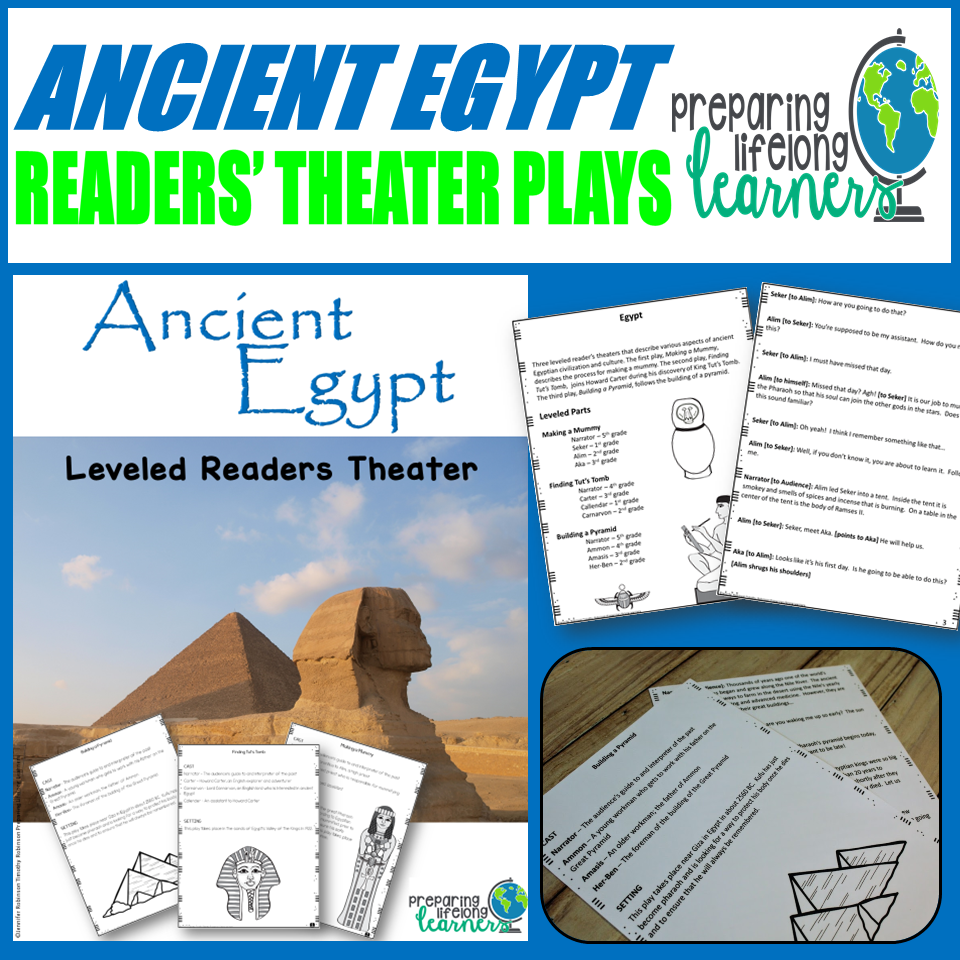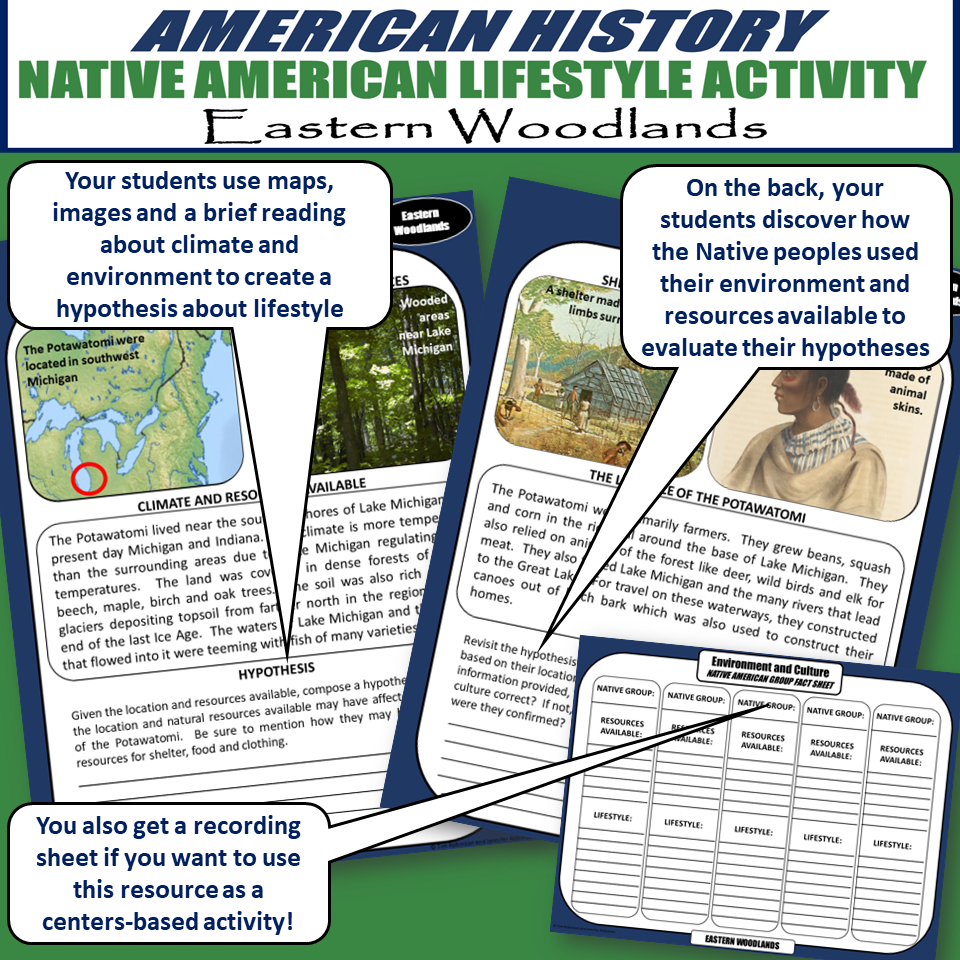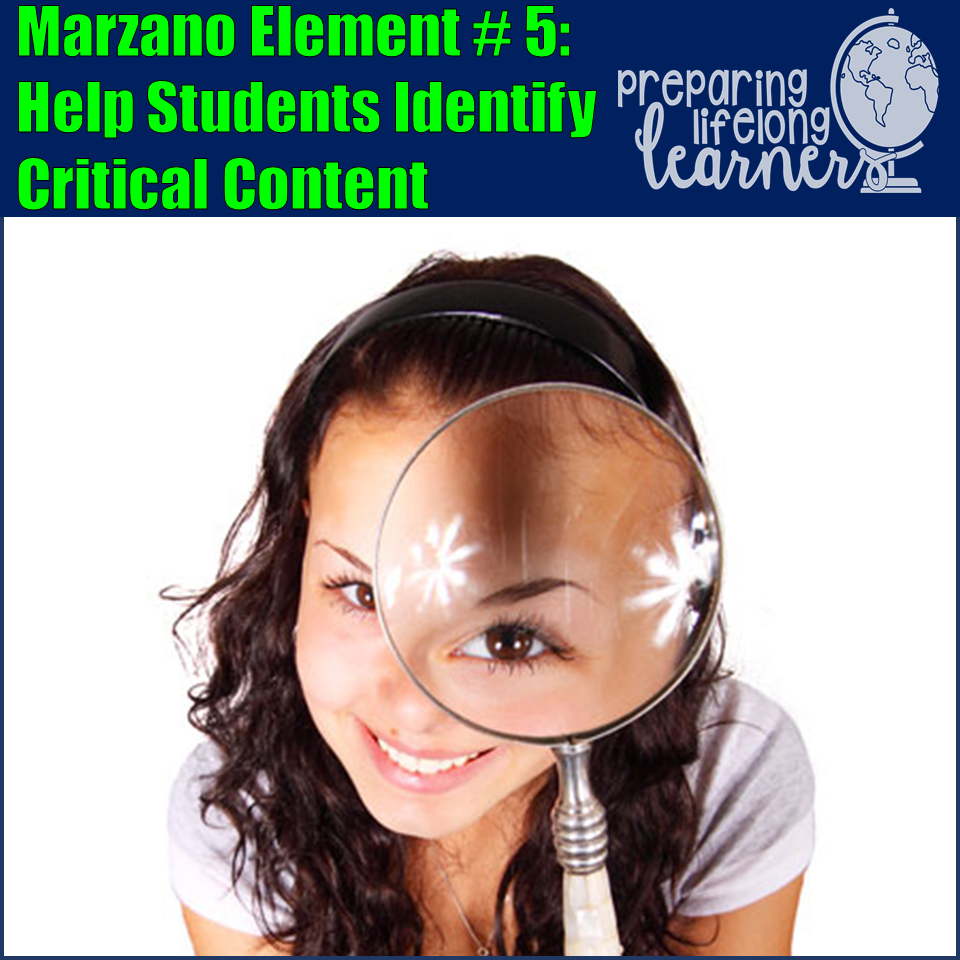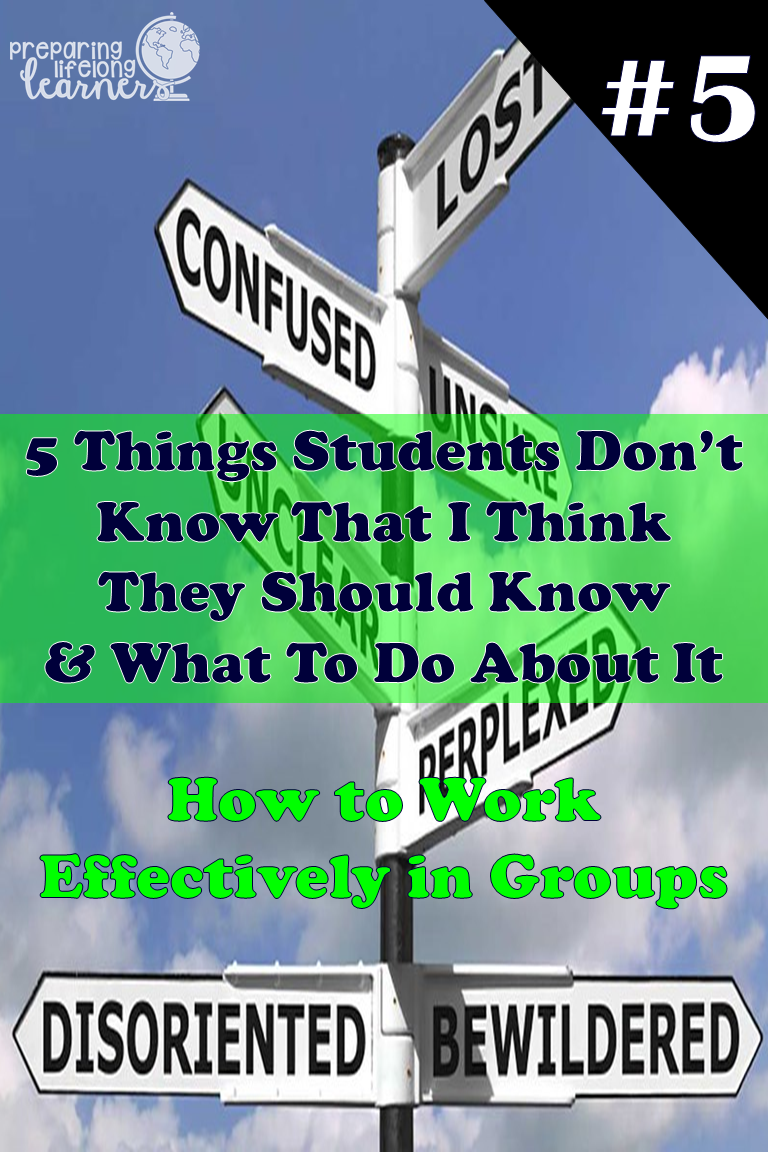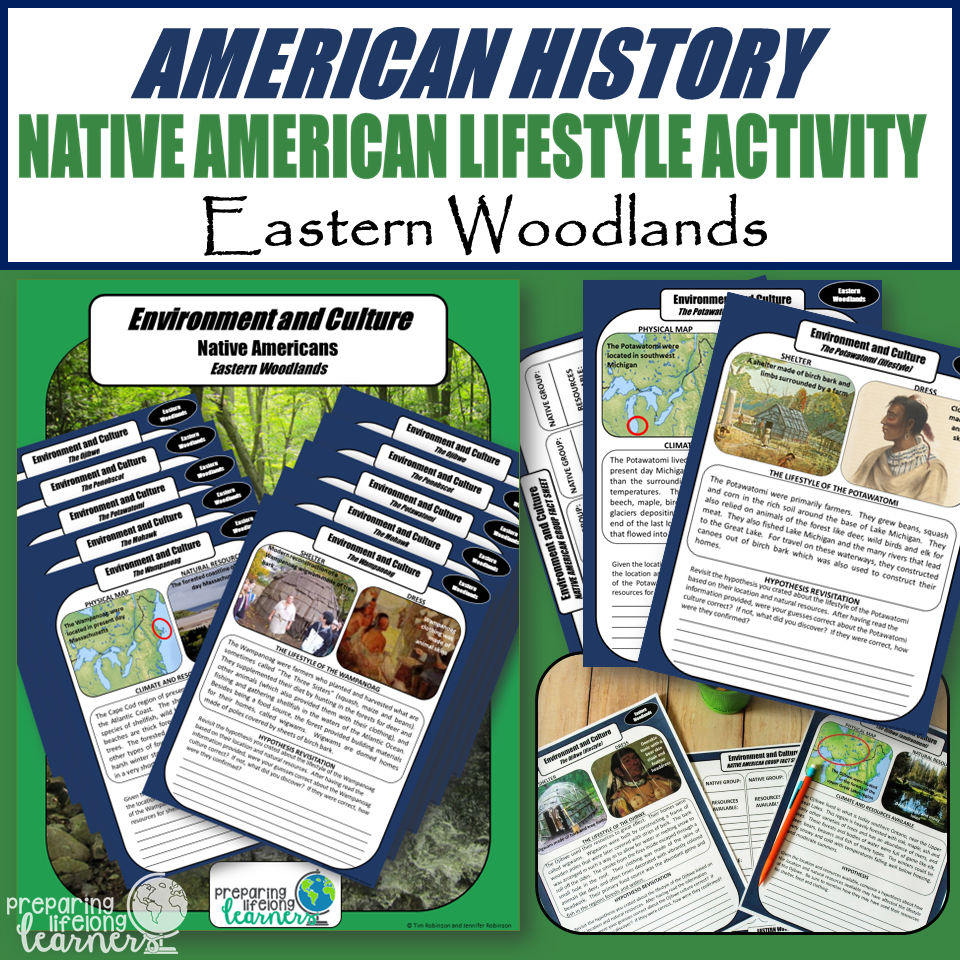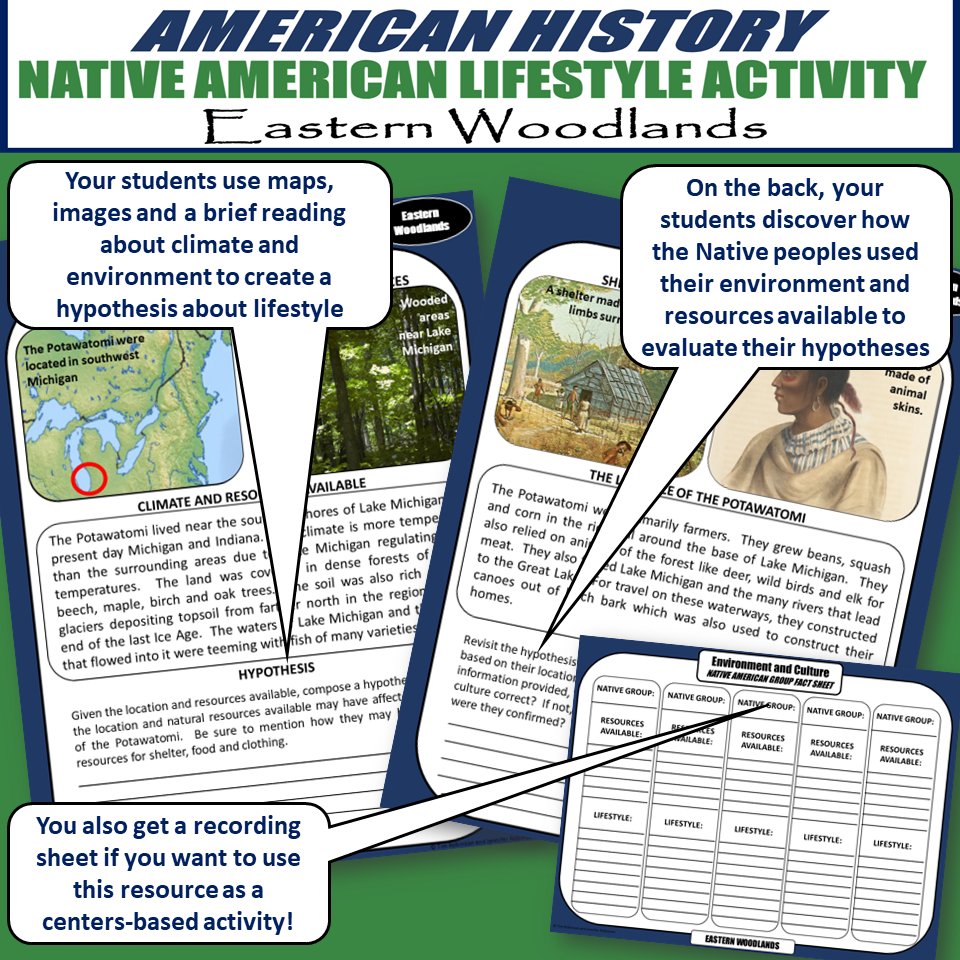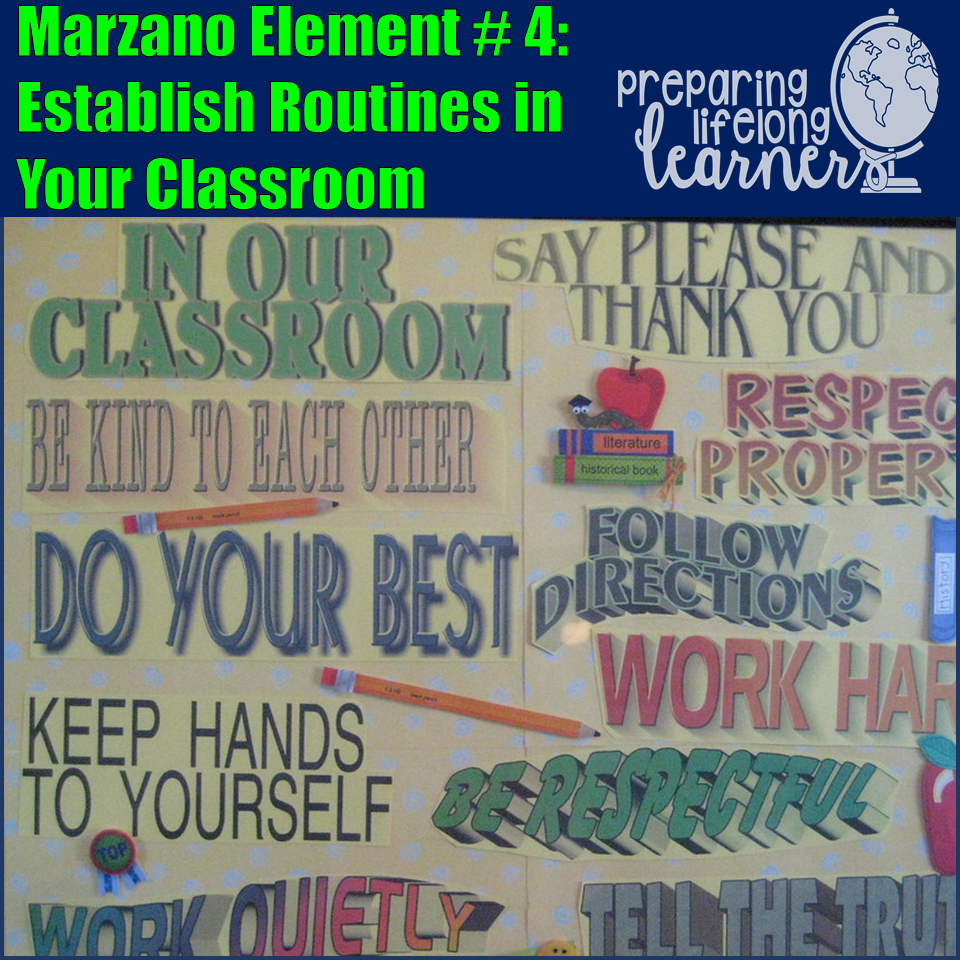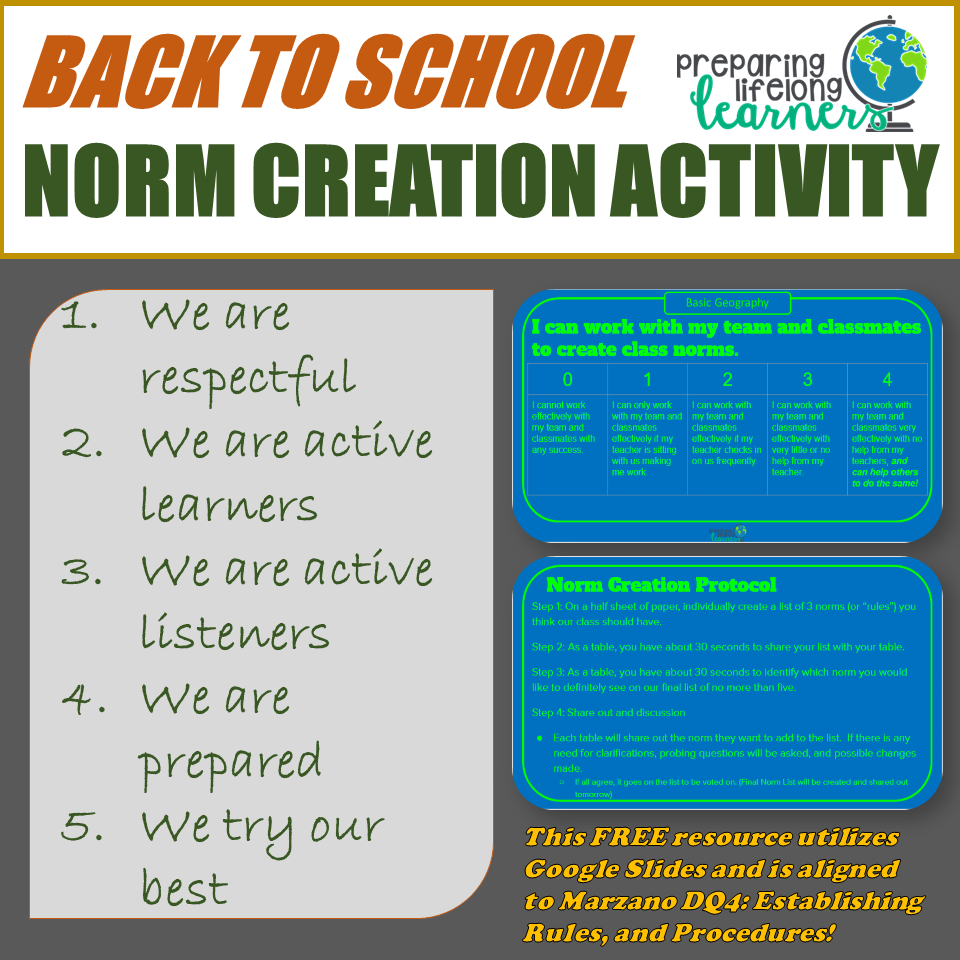|
One of the real tragedies in Social Studies curricula is very small amount of attention given to Native Americans, and the New World prior to European Contact. The Western Hemisphere was filled with hundreds of ancient cultures for thousands of years. These civilizations developed complex religious, structures and civilizations, yet are rarely mentioned except in relation to their conquest at the hands of Europeans in the 1500 to 1800's. Because they appear so seldomly in most state standards, it can be hard to find modern resources to study these great peoples. To try to fill some of this gap, I created my Native America Differentiated Readings. All of my differentiated reading sets contain three articles; each written at a middle school and upper elementary reading level (so 6 articles total), and my Native America set is no different. The topics included are: Native American Regions, Native American Lifestyles, and Native Americans Today. So, click the link below for my Native American Differentiated Readings, and don't forget to follow this blog and visit and follow my store for more great Social Studies resources!
0 Comments
Have you ever tried a reading activity with your students that calls for them to highlight what is important in a reading passage? If your students are anything like mine, they either go "highlighter crazy" and highlight almost everything on the page or just write "it's all important" in highlighter at the top. If everything is the most important part, nothing is. The same problem arises when students skim. Many simply cannot pick out what is important from what isn't. Dr. Marzano picked up on this shortcoming, and placed it as number five on his teaching map. The key with this element (as with most things) is to not assume your students can identify what is important - you must intentionally train them in this skill, then provide many small-scale opportunities for them to practice it. Most of my resources utilize this element in some way, but the ones that do so the most overtly are my Differentiated Readings, Reading Response Journals, and Native American Hypothesis Activities.
Click the links below to take a look at them, and be sure to follow this blog and my store for more great Social Studies resources and Marzano posts! I have done several blog posts about vocabulary task cards. I am a big believer in the activity because it helps students make deep and meaningful connections with and among vocabulary terms and uses a wide variety of learning styles. An additional benefit is that the activities and games I've designed to use the cards with help students work on communication and collaboration skills. This week, I'm going to highlight my Mesopotamia Vocabulary Cards. In this set, students will work with some familiar words (like writing or laws) and also be introduced to some very unusual terms (like ziggurat or Epic of Gilgamesh). This is an especially good set to use early in the year (which is when we teach it in our World History curriculum) because it gives students confidence that if they trust the process and play the games, they can tackle and master even very intimidating terms like cuneiform or Hammurabi's Code. So, click the link below for my Mesopotamia Vocabulary Task Cards which are also available as part of a bundle of other vocabulary task cards and as part of my Complete Mesopotamia Unit. And don't forget to visit and follow my store for other great World History resources!
Generate and Evaluate a Hypothesis while learning about Eastern Woodland Native Americans!10/13/2019 Last fall, I was lucky enough to attend the National Council of Social Studies in Chicago. It was an amazing few days filled with interesting and mind-opening presentations about just about anything you could think of related to social studies. Some sessions were better than others, but the one that really stuck with me was about how we teach about Native Americans. Actually, it was about how we don't. Nationwide, there are very few state or national standards tied to Native Americans, and, as a result, there are very few resources available. This inspired me to create some. Several years ago, I had written five sets of readers' theater plays (Eastern Woodlands, Pacific Northwest, Great Plains, Southeast, and Southwest) that my wife and I sell through her store which is geared more to elementary teachers although I also used them with my 8th graders. But, the resource I was inspired to create at the conference was my Eastern Woodlands Activity. This resource presents your students with information about the environment and resources available for five different Eastern Woodland tribes (the Potawatomi, Ojibwe, Penobscot, Mohawk, and Wampanoag), and asks your students to generate a hypothesis on how they used those resources to live. Once they have generated their hypotheses, they flip the page over to discover how the environment and resources were actually used, and are asked to revisit and evaluate their initial hypotheses. This is a great resource for individual research, group projects, or centers! So, click the link below for my Eastern Woodlands Activity, and if you are interested in those Native American readers' theater plays, visit my wife's store. For more great American History resources, be sure to visit and follow my store!
One of my biggest takeaways from the Marzano professional developments I've been through over the last several years are the concepts of 1) finding the right activities or strategies for your specific learning target, and 2) eliminating as many barriers as possible between students and learning. Marzano DQ 4 is directly tied to the second thing. Routines and procedures allow people to do things automatically. If students don't need to think about how to learn, they can focus more energy on how they learn. I really emphasize procedures in my classroom. One of the first days of school is devoted to generating class norms that will be used all year (in fact, this year my entire team of teachers will be using the norms my classes create). Norms are things we do in class; that's what makes them different from rules - rules are things you do not do. I also use the activity as an early opportunity for my students to practice the skills of individual brainstorming, small group collaborating, and whole class discussion all in just one lesson that also produces something we use and review every single day in class! So, if you are interested in my FREE Google Slides based Norm Creation Activity that gets your students interacting and provides you with norms that your students have created and bought in to, click the link below. And don't forget to visit and follow my store for other great World History and American History resources!
|
MEET TIMI'm an 18 year veteran teacher that loves teaching, coaching, writing, and my family.
Archives
May 2022
|

